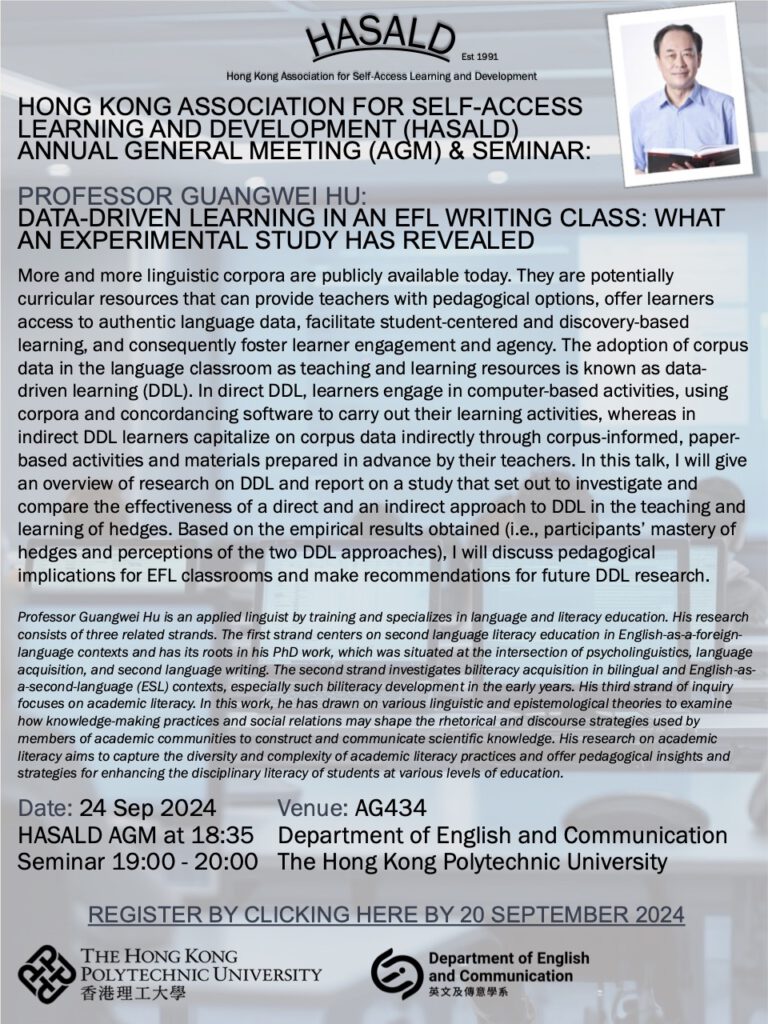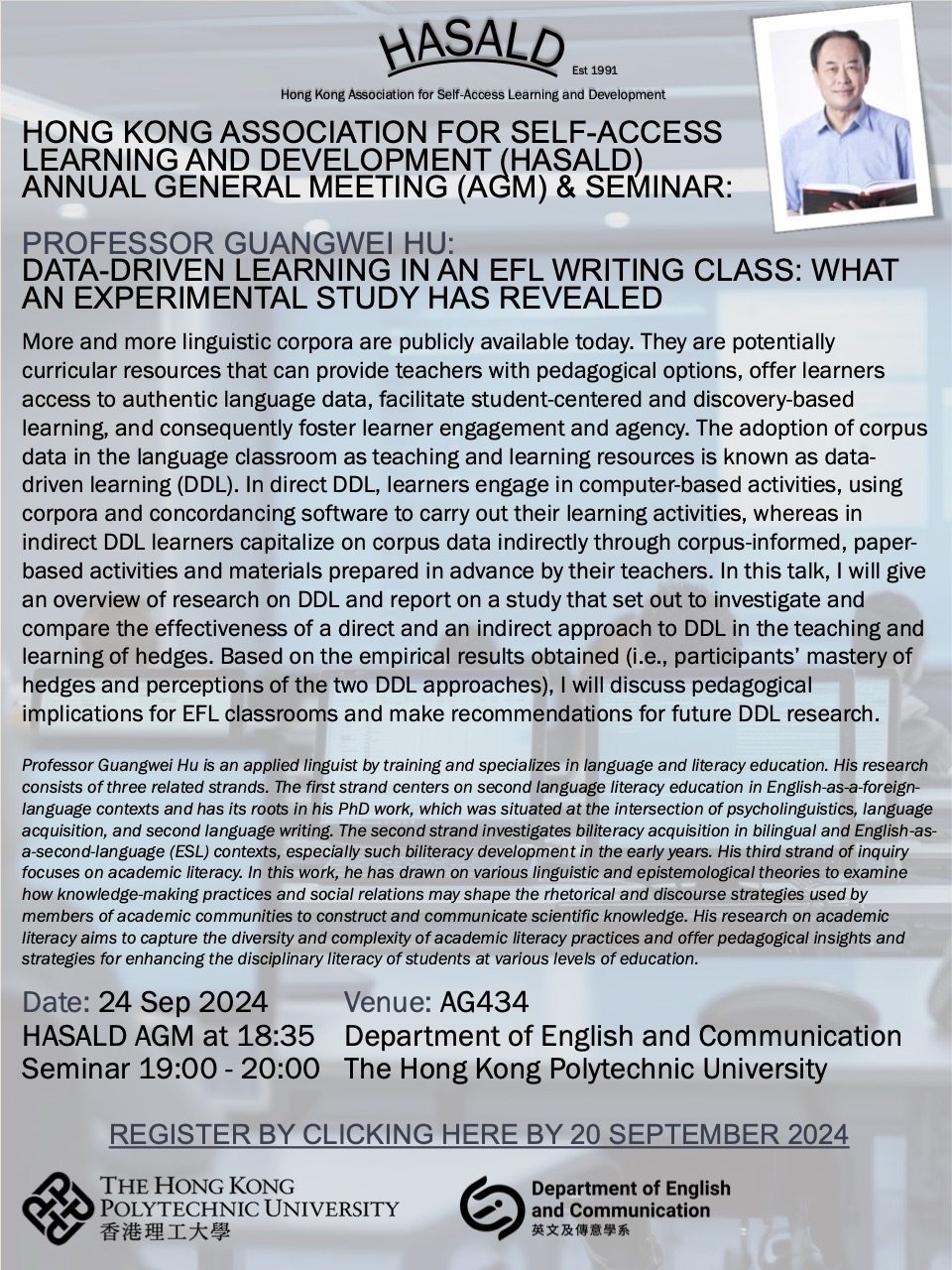Data-Driven Learning in an EFL Writing Class: What an Experimental Study Has Revealed
By Professor Guangwei Hu
The Hong Kong Polytechnic University
More and more linguistic corpora are publicly available today. They are potentially curricular resources that can provide teachers with pedagogical options, offer learners access to authentic language data, facilitate student-centered and discovery-based learning, and consequently foster learner engagement and agency. The adoption of corpus data in the language classroom as teaching and learning resources is known as data-driven learning (DDL). In direct DDL, learners engage in computer-based activities, using corpora and concordancing software to carry out their learning activities, whereas in indirect DDL learners capitalize on corpus data indirectly through corpus-informed, paper-based activities and materials prepared in advance by their teachers. In this talk, I will give an overview of research on DDL and report on a study that set out to investigate and compare the effectiveness of a direct and an indirect approach to DDL in the teaching and learning of hedges. Based on the empirical results obtained (i.e., participants’ mastery of hedges and perceptions of the two DDL approaches), I will discuss pedagogical implications for EFL classrooms and make recommendations for future DDL research.
Biography
Professor Guangwei Hu is an applied linguist by training and specializes in language and literacy education. His research consists of three related strands. The first strand centers on second language literacy education in English-as-a-foreign-language contexts and has its roots in his PhD work, which was situated at the intersection of psycholinguistics, language acquisition, and second language writing. The second strand investigates biliteracy acquisition in bilingual and English-as-a-second-language (ESL) contexts, especially such biliteracy development in the early years. His third strand of inquiry focuses on academic literacy. In this work, he has drawn on various linguistic and epistemological theories to examine how knowledge-making practices and social relations may shape the rhetorical and discourse strategies used by members of academic communities to construct and communicate scientific knowledge. His research on academic literacy aims to capture the diversity and complexity of academic literacy practices and offer pedagogical insights and strategies for enhancing the disciplinary literacy of students at various levels of education.

